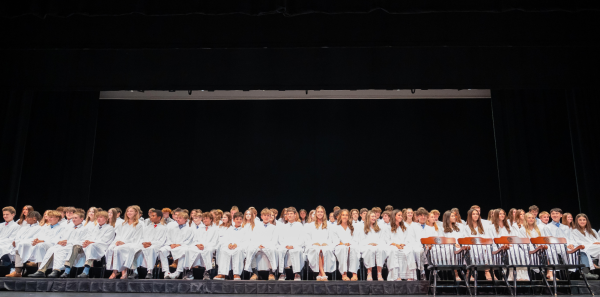Dumber Over the Summer?
Do Students Really Need Academic Work During the Summer?
These are a few of the titles middle schoolers had to read over the summer.
After going white water rafting in Colorado, attending sleepaway camp, or maybe even going deep sea fishing in the Keys, summer has finally come to an end. Students have finished up their summer work, packed their bags, and prepared themselves for the new school year. But, are the students actually ready to go academically? The Neersyde decided to explore the effects of summer vacation on students because summer sends us some contradictory messages. Are we supposed to rest for almost three months, or – as our summer reading, math packets, and grammar packets might suggest – are we supposed to play a little and work (quite a bit)? Does too much summer time down time turn our brains to mush?
According to the New York State Library website, “In a 2009 government web cast, Secretary of Education Arne Duncan described summer learning loss as ‘devastating.’ This is what researchers have often referred to as the ‘summer slide.’ It is estimated that school summer breaks will cause the average student to lose up to one month of instruction, with disadvantaged students being disproportionately affected (Cooper, 1996).” This strongly indicates that students need summer work, maybe even more than they already get. The work that TBS students get over the summer usually involves math and English. The students in every grade have to read two books for English and they also must complete a math and grammar packet. But most students want even less work than they already have. “Summer needs to be longer,” said eighth grader Joe Mariani. “We get a little too much summer work.” However, some teachers believe that school work over the summer helps reinforce concepts and skills students need to be successful and prepared for the grades they are entering. Mrs. Devine, the Middle School English Department Chair, thinks that summer work is a good idea. “I think that is important to read over the summer,” she commented. “If [students] did not, they would have a more difficult time re-acclimating to the academic routine.” Mrs. Hansen, the middle school math department chair, agrees. “Students always forget their common squares [over the summer],” she remarked.
Maybe the problem is that our summer break – about 10 straight weeks – is too long. In China, and many other countries, there is a different system for breaks. Those countries have many shorter breaks throughout the school year, and then they only have a month off for summer vacation. If we used this schedule in the United States, maybe the students would retain the knowledge and skills they learned the previous year, so they would be prepared for the year ahead. ”I think it is a great idea because we could prevent the summer slide, but it would be very hard to change the whole schedule for the United States,” said Mrs. Hansen.
Even though many Benjamin students think they need a longer summer vacation and less work, it’s probably not the best recipe for academic success. According to scholastic.com, “Young readers who don’t continue to read over the summer, especially those who are reluctant or at-risk, are likely to lose crucial ground. One summer off can sometimes mean a whole school year of struggling academic performance.” Many teachers at TBS agree. They want their students to have a break, but they also want them to have some work to keep their minds sharp and prepared for the fall. ”No [summer break is not too long], it gives everyone a chance to go outside of the classroom and enjoy life,” affirms Mrs. Hansen. “It’s an easy opportunity to have family time.” She also thinks that, “middle school students are given the appropriate amount of work [over the summer].”
The Neersyde also sent out a survey to all of the students in the Middle School asking if students would rather have several three-week breaks throughout the year as opposed to the regular summer break. Out of the 84 students who responded to the survey, 75% of them wanted to keep summer break as it is.
While students may whine and complain about the work they have to do over the summer, teachers feel it keeps them flexing their brain “muscles” so they are prepared for the next school year. So, just like that bad-tasting medicine, summer school work may not be fun for students, but it is actually good for them.





